Philippine Progress: Shift in Sports, Shift in System
(First published on antipinoy.com on July 7, 2010)
At the time of this writing, millions of people around the world are obsessing about the 2010 FIFA World Cup in South Africa and the noise of the annoying Vuvuzela horn. From every continent, people speaking almost every language, coming from practically every race, creed, and color are excitedly watching the game called “Association Football.” Unfortunately, there’s been relative calm in the Philippines, as hardly anyone, save for a few die-hard soccer fans, actually watched the World Cup closely.
Soccer, (coming from the word “association” in the sport’s full-name “Association Football”), called “Football” by everyone else, is also known as the world’s Beautiful Game. It is one of the most democratic sports ever – as Time Magazine recently described it. Anyone can play and excel in it: Rich or poor, light-skinned or dark-skinned, and most importantly, tall or short. That last one is of utmost importance, considering that we Filipinos, most of whom are not very tall, are crazy about basketball – a sport that obviously favors tall players.

It has caused numerous ceasefires in many conflict zones as Israelis and Palestinians (Soccer is the biggest sport in the Middle East) or Rebel guerrillas and Government troops in continents like Africa or Latin America, often stop fighting just to watch the World Cup or other high-profile soccer matches on TV or listen to live commentaries on radio. During World War I, an informal Truce on Christmas Day in 1914 witnessed one of the most amazing displays of human fraternity as warring sides – British & French versus the Germans came together and played Soccer. After having played the game, made friends, and exchanged names & addresses, the soldiers simply could not shoot at each other once the truce ended, forcing their respective angry generals to send all of them to other fronts to fight against other enemies.
It’s a real shame because while Filipinos were glued to the NBA Finals at about the same time that the World Cup was just about starting, one unfortunate fact continues to be ignored by basketball-crazy Filipinos: We are never going to excel in sports that require height. Unlike most basketball-loving Filipinos, millions of average-height, barely middle-class, or even impoverished Africans and Latin Americans who play and practice soccer can actually dream of one day playing professionally for local or internationally-famous professional teams such as Manchester United (England), Juventus (Italy), Real Madrid (Spain), or Galatasaray (Turkey) – to name a few – and live a life of fame and fortune. These are dreams which are feasible as long as whoever plays and practices the sport has the competence, talent, and commitment, because the game-dynamics of soccer simply does not require height. It needs to be said that soccer legend Diego Maradona of Argentina became a soccer superstar with his very Filipino height of 5 ft 4.
In stark contrast to the meritocratic nature of soccer which does not care much about being born with the genes for height, the fixation that Filipinos have for basketball creates so many shattered dreams. Millions of young Filipinos are raised to love a sport that does not love them back. Many waste inordinate amounts of time practicing the game, wishing that they would be just like Kobe Bryant when they grow up, only to grow to their full height which might be just a few inches taller than Diego Maradona – a height that is just not cut for competitive basketball.
Filipinos even love to watch the NBA play-offs, but even if the Philippines is perhaps the most basketball-crazy country in the World (Americans are more obsessed with American Football and Baseball), countries with much more diversified sporting interests such as Mainland China and the former Yugoslav republics of Serbia, Croatia, etc, who all watch more soccer than they do basketball, have successfully sent players to the NBA. The Philippines has never sent a Filipino to the NBA!
Numerous honest discussions and debates have erupted about the need to shift the Philippines’ team sports focus from the excessively height-centric basketball towards the more height-agnostic soccer in order to focus on a sport in which every ordinary Filipino can excel. However, the rebuttals to the contrary range from such excuses as “The cultural temperament of Filipinos makes them prefer basketball because it has a faster-pace of point-scoring while soccer’s scores are low and goal-scoring is rare” to other excuses like“soccer requires a huge field in order to play while basketball needs a much smaller space.”

Who says you need a field to play soccer?
Both excuses fall flat considering that Filipinos are ethnically and even temperamentally similar to the Malays of Malaysia and Brunei (except in religion), both of whom enjoy and excel in soccer within the ASEAN region. It can be argued too that most Latin Americans, with whom Filipinos share common Spanish colonial history vis-à-vis Hispano-America and a very similar Iberian heritage with Portuguese-speaking Brazil, are somewhat culturally similar to Filipinos (especially in their sense of humor) and yet they too enjoy the sport immensely and are perhaps among the most excellent players of the Beautiful Game in the World. Most importantly, millions of impoverished Latin-Americans and Africans often practice playing soccer just about anywhere, be it on a small field, a dusty road, or even a small backyard. Some of the world’s highest-paid soccer stars come from such an impoverished background and they often cherish their childhood memories of growing up, playing soccer barefoot with plastic bottles or anything they can kick around as their ball, drawing lines on the ground to serve as their “goals.” It is just not true that Filipinos cannot shift to soccer.
The unfortunate fact is that Filipinos prefer to stick to whatever status quo they’ve grown used to. The real problem here is Inertia: the resistance to change.
Resistance to Change
Indeed, there is something really flawed about the situation, and Filipinos have to immediately correct it. Unfortunately, there seems to be something about us Filipinos that exacerbates our resistance to change: We have a tendency to refuse to admit that a problem exists, and often prefer to just ignore it and sweep the problem under the rug. In case that problem stares squarely at us, thereby making it impossible to ignore, quite often, we just outright refuse to do the work that would fix that problem and just endure the resulting mediocrity. Worse, many Filipinos prefer to make excuses that seek to justify such refusal to fix the problem, oftentimes reasoning – using intellectual dishonesty – that trying to fix the problem would actually make things worse.
We need not look far to see that this problem is not solely confined to the world of sports, in which increasing attention is being placed on the Soccer versus Basketball debate. Just recently, journalist and current Ambassador to Greece, Rigoberto Tiglao, recently wrote a two-part special on why Filipinos are not into Soccer.

The Tall Man’s Game
In it, he likened the need for Filipinos to carefully consider shifting from basketball to soccer and the difficulty in convincing Filipinos to do so, with the fact that many Filipinos still stubbornly refuse to at least attempt to consider the objective merits of the Parliamentary System as a possible option to replace the current Philippine Presidential System. It has been observed that the Philippine Presidential System’s skew towards popularity and name-recall , coupled with the Philippine Electorate’s preference for form over substance that unfortunately brought about perhaps the most embarrassing stain on the Philippines’ international reputation in 1998, when celebrity actor Joseph “Erap” Estrada won as President of the Philippines. The Philippines had another close call in 2004 when his fellow celebrity actor and close friend, the late Fernando Poe, Jr. almost won. And just recently in May 2010, the convicted-of-plunder ex-President Estrada who was deposed in 2001 ran again and took second place.
In the meantime, numerous politicians aspiring for the Presidency jockey for positions in the equally useless and non-representative Philippine Senate (whose Senators do not represent constituencies unlike in the USA, where Senators are elected per State), and as a result, the Philippine Senate has numerous “Senactors” (Senators who are actors) as well as politicians married to actresses or celebrities.
We continue to be a basketball-crazed society that is isolated from the soccer-loving rest of the world and yet we can’t even excel in this game we so love, nor can we send talented Filipino players to the NBA because basketball is a game that clearly favors height and we simply do not have the height that would at least give us a fighting chance.
In almost the exact same way, we continue to clamor for improvements in our lives, our economic livelihood, and the quality of our politics, yet because of a system of government whose electoral procedure (choosing the name of an individual candidate running for President) clearly favors “winnability” (popularity and name-recall) over competence, we end up with incompetent people who become President only because of their celebrity status or famous surnames. At other times, we also end up with leaders who – though sometimes competent – are forced to pander to the public lest they risk being unable to govern if they fail to play the popularity game.
When will we Filipinos realize that for us to excel in team sports, we need to choose a sport where competence and real talent are much more important than one’s height?
When will we Filipinos realize that for our society to be better-run, more efficient, and more responsive to our people’s needs, we need to choose a system of government in which quality policy-making, platform relevance, and competence take overwhelming precedence over petty traits such as celebrity-status, personal popularity, and name-recall?
Knowing that both basketball and the current Presidential System are not good for us, why then do we Filipinos continue to insist on sticking it out with the both of them instead of making the necessary changes that would correct the problems that these two Problematic American Imports continue to cause?
Once upon a time, Albert Einstein said that “Insanity is doing the same thing over and over again, expecting different results.”
Basketball & the Presidential System: Problematic US Imports
There is absolutely no doubt that an objective and honest discussion on the merits of soccer over basketball most certainly parallels the discussion on the merits of a Parliamentary System over the Presidential System.
Both Basketball and the Presidential System are largely American inventions which they brought along with them during the almost 50 years that they occupied our country and we Filipinos took to both of them as if they were our own.
Unfortunately, both basketball and the Presidential System have pre-requisites that Americans often meet which Filipinos don’t: Basketball inherently favors height for a player to be considered eligible for competitive play because the hoops are high. On the other hand, the Presidential System requires that the electorate be naturally issues-centric and platform-oriented in order to counterbalance the inherent personality-centered exercise of voting for a presidential candidate.

They want to be like Kobe
Incidentally, both basketball and the Presidential System have brought Failure to Filipinos: Basketball has shattered the dreams and self-esteem of millions of young Filipinos who’ve continued to aspire to be just like their idols Kareem Abdul Jabbar, Michael Jordan, or Kobe Bryant, practicing basketball for hours on end, only to be rendered ineligible for competitive basketball all because they were too short. On the other hand, the current Philippine Presidential System (based on the 1987 Constitution) has shattered the lives of millions of Filipinos who – because the system favors candidate winnability (popularity, and name-recall) over competence and a sound platform for governance – often end up with leaders who merely have popularity but no competence. Sometimes we end up with leaders and lawmakers who have no choice but to pander to the public instead of focusing on doing what is the correct and beneficial course of action in the long-term, even if it may appear to be unpopular in the short-term. Most politicians with presidential ambitions (except for a select few) therefore tend to focus too much on short-term popularity by engaging in publicity stunts in order to have the name-recall and media attention they need just to have a stab at the Presidency when the time comes to run for it.
In the end, Philippine Society as well as its Government is often unable to make the hard decisions necessary that would bring about a better economy, more jobs, more prosperity, and more improvements to the lives of the people, all because the focus on popularity-based personality-politics always manages to derail society away from focusing on the most important aspects of governance.
In a manner of speaking, it can be said that both basketball and the Presidential System are skewed towards traits which Filipinos either do not have in abundance (height for basketball) or towards traits that Filipinos are extremely obsessed about (popularity and celebrity-status for the Presidential System), both of which lead to Mediocrity and ultimately, towards Failure.
In the former case, Americans have a bigger pool of tall people to select from who may excel in professional basketball, while Filipinos clearly do not. In the latter, Americans have the required cultural and political maturity, policy and platform focus, issues focus, and the ability to zero-in more on the message rather than the messenger in order to counteract and counterbalance the inherent skew towards popularity and name-recall that is inherent in the Presidential System. Filipinos, sadly, are more culturally pre-disposed towards personality, celebrity-status, and popularity, so that winning Philippine presidential elections is more about fielding candidates who are deemed “winnable” rather than determining who among the prospective candidates is the most competent, possesses the necessary qualifications that would enable him to perform his duties successfully, and who has done the best job related to governance in the past and as such, is therefore most likely going to do a splendid job.
Regarding the sport of basketball, it is also no wonder that Filipino basketball players are not exactly NBA-quality (and therefore explains why no Filipino has ever gone to the NBA). In the Philippines, many basketball players who get chosen to go professional are often those who are of towering height, never mind that they may not exactly be the best among the entire pool of available players. There are oftentimes people who play basketball really well and can shoot hoops accurately, but simply because they are too short and unable to do slam-dunks, they are totally ignored by recruitment scouts for professional or semi-professional teams.
In fact, stories circulated in the past about some UAAP basketball teams whose alumni associations recruited players who were not really basketball prodigies, but just plain “tall giants” from their respective high schools. It was evident from their on-court performance: These were extremely tall players who always missed getting the ball through the basket during free throws. No mystery there: Such players were recruited for their height, not for their prowess in basketball.

Product of the Philippine Presidential System
Once again, this parallel zeroes in on the main problem that the Presidential System has brought on the Philippines. Very similar to basketball’s unfair preference for tall people, the Presidential System has an inherent skew towards winnability (popularity and name-recall), coupled with the cultural inclination of Filipinos to gossip more about popular celebrities and their private lives or marital woes, and discuss less about the most important issues related to the economy and governance. It is therefore not difficult to see why numerous actors and showbiz celebrities end up as politicians and why professional politicians often end up marrying famous actresses or TV personalities just to gain media mileage and rapport with the voting public. It also shows precisely why the discussions in Philippine Politics tend towards vacuity and pettiness, rather than on real practical problem-solving. For this reason, the Philippines continues to be unable to fix the same kinds of problems that have hounded it for decades, while other countries are zooming ahead leaving the Philippines in the dust.
In other words, the system of government in the Philippines is set up so that the people who are most favored to win in national elections tend to be those candidates who have the necessary popularity and the name-recall (actors, showbiz celebrities, children of well-known politicians, politicians married to celebrities, controversial public figures who get excessive media exposure, athletes and basketball stars, etc) required to win said popularity contests, to the detriment of those people who have the requisite expertise, competence, track record, vision, and most importantly, the relevant platform of governance that matches the needs of the country at a given point in time.
It doesn’t help much that the Philippines continues to make use of the direct popular vote in stark contrast to the more indirect voting system of the US Electoral College, which was set up by America’s Founding Fathers with the express intention of moderating and mitigating the tyranny of popularity, name-recall, and emotionalism that is the unfortunate negative tendency of direct democracy. In addition, there also is the fact that the two-party system of the USA makes use of party-based Caucuses & Primary Elections to ensure that – as much as possible – the best man (or woman) for the job is chosen by each party.
To be absolutely honest about it, there is a steadily increasing dissatisfaction and growing base of evidence worldwide against the dismal operational efficiency and low degree of accountability resulting from the Presidential System. Case in point: There is a large number of disadvantages that the Presidential System is described to possess by numerous political scientists and economists, particularly by renowned political scientist and expert on political systems Dr. Juan Linz, PhD of Yale in his famous essay “The Perils of Presidentialism”) as well as a recent joint World Bank and University of Chicago study entitled “Accountability and Corruption: Political Institutions Matter” – authored by three Latin American economists namely, Dr. Daniel Lederman, PhD – Chile, Dr. Norman Loayza, PhD – Peru, and Dr. Rodrigo Soares, PhD – Brazil, correlating the Presidential System with greater levels of corruption on the one hand, and much lower incidences of corruption with the Parliamentary System on the other.
Notwithstanding all those operational disadvantages of the “separation-of-powers” Presidential System, coupled with the inherent tendency towards personality-politics found in it, at the very least, it can be said that the USA has specific safeguards such as the use of Primaries and the Electoral College which clearly mitigate the negative traits associated with the Presidential System’s popularity-centric electoral procedure.
Alas, no such safeguards such as a “Two-Party System”, “Party Primaries” and the reliance on an “Electoral College” exist for the current Philippine Presidential System based on the 1987 Constitution. It is for this reason that the full unadulterated impact of the tyranny of popularity bears down heavily on Philippine Society.
* * *
Defects of the 1987 Constitution’s Presidential System

Fr. Joaquín Bernas, SJ: Forgot to consider the Problem of having a Minority President
Unfortunately for Filipinos, the Philippine Constitutional Commission of 1986 which created the current 1987 Constitution – of which one of the most vocal members is revered Constitutionalist and Jesuit Fr. Joaquín Bernas, SJ – set up a system that has consistently produced presidents who do not have a majority mandate. The 1987 Constitution did not support the creation of a two-party system which would enable the electoral winner to emerge with an absolute majority, and instead, allows for multiple candidates to run for president. The real dilemma here is that allowing multiple candidates to run for President of the Philippines invariably results in splitting the vote in three ways or more, in which there is a big possibility that the candidate who emerges with the most number of votes merely wins with a plurality but unfortunately does not have a majority (more than 50%) of all votes cast. A President who does not get a majority of all votes cast is a Minority President.
Having a minority president is obviously a major disadvantage and creates a crisis of governance. In fact, it is a curse. Minority Presidents are always disadvantaged, because Philippine media has always had the tendency to pander to the preferences of the public. A minority president with say, 40% of the vote, will have 60% of the electorate stacked against him as they did not vote for him, making him vulnerable to gripes, complaints, and negative articles published in the papers.
Every single Philippine President who came after the late President Cory C. Aquino has been a minority president. Former President Fidel Ramos only had 23.5% of the entire vote thanks to so many rival candidates running for the presidency in the 1992 elections. Ousted former President Joseph “Erap” Estrada was a minority president, having just around 40% of the entire number of votes cast. And in 2004, former President Gloria Macapagal-Arroyo was also a minority president with around 38% of all votes cast. It is no surprise, therefore, that all of them were often presented unfavorably by media during their term.
In fact, our popular new president, President Benigno Simeon Aquino III is himself a minority president as his mandate is said to be just around 42%, with roughly 58% of the electorate having voted for another candidate.
Now, lest we think that Minority Presidents are extremely common around the world, the fact is that in a majority of countries that allow for multiple candidates for President such as France, numerous countries in Latin America, countries using a presidential system in Eastern Europe, Indonesia, Afghanistan, and even East Timor, the prospect of a Minority President (a president with less than 50% of all total votes cast) is thoroughly avoided through provisions for a second round of elections called the “Run-Off.”

Le Pen took 16% versus Chirac’s 19% in 2002’s first round as the vote was split among 16 candidates. After the Run-off: Chirac won 82%, Le Pen took 18%
The dynamics for holding Two-Round elections are simple: The first round of elections pits all candidates, say, 3 or more candidates for President against each other. After they slug it out in the first round, the top 2 candidates who emerge from the first round are then pitted against each other in the Run-Off election, where a week or more after the first round, everyone goes back to the polling stations to vote in the second round “Run-Off.” Since there are only two candidates in a run-off, a clear majority-winner will emerge. It is in such an electoral system where people who voted for other candidates during the first round are then forced to “choose the lesser evil” during the “Run-Off” round. At the very least, voters can choose whom they really want during the first round, and if their favorite candidate was eliminated after the first round, it’s during the run-off where they throw their support behind one of the two candidates.
Here is an example: France’s 2002 Elections. The first round of elections saw numerous candidates slugging it out with Gaullist re-electionist Jacques Chirac coming out on top and with Right-wing “Neo-Nazi” and anti-immigration Front National candidate Jean-Marie Le Pen snatching second place. As there were too many candidates, Jacques Chirac did not get a majority of the vote, so a Run-Off had to be held exactly one week after, pitting the top two candidates from the first round against each other. The Run-Off was an amazing display of solidarity among the French in order to avoid allowing a “Neo-Nazi” like Le Pen to emerge victorious. Everyone from the Left – Communists, Socialists, even people who had formerly hated the right-of-center Gaullists with a vengeance, went in all-out support for Jacques Chirac in order to ensure the defeat of far right, ultra-nationalist, anti-immigration Front National candidate Le Pen.
Alas, the 1987 Constitution made absolutely no provisions for a run-off election, nor did the Constitution’s framers find it important to avoid having a minority president. That is a major defect.
Unfortunately, this inherent defect in the 1987 Constitution cannot be fixed unless the Constitution is amended. That is exactly what a Constitutional Amendment is all about: If something is missing, needs to be removed, or changed in the Constitution (never mind if it’s a word or a punctuation mark), the Constitution needs to be amended. There is unfortunately no real way around it. The 1987 Constitution is defective and needs thorough revision, if not an overhaul.
The Better Way: Soccer and the Parliamentary System
Fortunately, since it is clear that both basketball and the current Philippine Presidential System are more and more proving to be inappropriate and extremely non-conducive to success for Filipinos, we now have the opportunity to look at the clear alternatives. For our “national team sport”, we definitely should consider soccer. For our form of government, we should bid Adieu to the Presidential System and move on towards the highly recommended Parliamentary System. (Recommended by Ivy League Political Scientists and Economists)
We already know the issue with basketball. Basketball requires height and average Filipinos just don’t have height. Rather than continuing to produce heart-broken basketball-loving youngsters whose dreams of going professional are shattered by their inability to grow to at least 6 ft tall, it’s about time our society – led by our Government, Media, Schools, and our Businesses who sponsor sporting events – decisively shifted over to soccer.
There should be no turning back. Soccer is clearly the World’s Beautiful Game, loved by almost everyone of all creeds, colors, cultures, languages, races, and continents. It is a sport that can allow Filipinos to excel because it does not require nor does it even favor height in order for players to be successful. It is a sport that promotes more teamwork as there is much more ball-passing that goes on than in basketball. In soccer, most goals are scored as a result of teamwork and last-minute ball-passing, in contrast to basketball’s tendency to promote keeping the ball to oneself selfishly in order to reap the glory of scoring.
We also know that the Presidential System has the tendency to promote personality politics due largely to the electoral procedure of choosing an individual candidate to become President. During such Presidential campaigns especially in the Philippines, candidates are extremely likely to promote and differentiate themselves from their opponents by talking more about their own personal traits. Instead of playing up their party-affiliations and their party platforms, advocacies, and policy proposals, Presidential candidates in the Philippines, are forced to play the popularity game simply because it is ultimately popularity, winnability, and name-recall that gets voters picking a candidate’s name on the Presidential System’s ballot. Worse, the Philippine Presidential System creates Minority Presidents.

Question Time: You need to know your stuff well to be Prime Minister
In stark contrast, the Parliamentary System requires the formation of majority governments, through either of two ways: a party can win an overwhelming majority of parliamentary seats, and immediately, the majority party’s leader immediately becomes the Prime Minister. Another way such a majority government is formed is through coalition-building. Coalition-blocs can be formed, so that if one bloc gains a majority of all seats in parliament, that coalition then forms the government, and the leader of the party with the most seats within that majority bloc emerges as Prime Minister. Prime Ministers in a Parliamentary System, therefore tend to have more majority-support and therefore a clearer mandate than minority Presidents emerging from the runoff-less Philippine Presidential Elections.
Moreover, the Parliamentary System is a much more party-centric system whose campaigns tend to be much more issues-advocacy, ideas-centric (as opposed to personality-centric), and platform-focused as the electoral dynamics do not involve the Pubic Electorate directly choosing who the Prime Minister will be. This does not even talk about the Parliamentary System’s bias towards leaders with competence and solid knowledge of all the relevant details regarding the country’s affairs: A Parliamentary System features a weekly Question Time session where the Prime Minister and his Front Benchers (Cabinet) are grilled by members of the opposition to make sure that all angles relating to policy-making and functioning of the government and cabinet have considered the best options and are also running properly. A Prime Minister must therefore be on his toes, totally knowledgeable, and able to respond extemporaneously as he is often expected to answer most questions without deferring to other members. For this reason, not all ordinary MP’s aspire to become PM and members of the majority party often cooperate to help brief the PM and the front bench on what they need to know so that they can properly respond. This Parliamentary feature further promotes more solid team dynamics as party members close-ranks to support their PM and party front-benchers.
Listed below are two ways in which the Philippines can develop a True Party System where the politicians rally around ideas, platforms, and consistent policies, and form a loyalty to their parties and their core principles, and where the voting public can be made to look less at personalities and look more at the collective nature of parties and vote accordingly:
-

Dr. Kasuya´s observation: 1 term only limit = weaker parties
Removal of Term Limits – Allowing the top leader to continue to stand for elections more than once (removal of term limits) actually promotes stronger party dynamics as parties cease to be ad-hoc election clubs that get formed only to defray election-period campaign costs, and become more long-standing and consistent in rallying around a stable policy-platform in order to maintain continuity. This was the observation made in a research paper entitled “Presidential Term Limits and Party-System Stability in New Democracies” as well as the book “Presidential Bandwagon: Parties and Party Systems in the Philippines“, both authored by Japanese political scientist Dr. Yuko Kasuya, PhD when she observed that the party structure of the Philippines rapidly deteriorated after the idea of presidential re-election was banned by the 1987 Constitution, thus preventing an elected President (or Head of Government) from standing for more than one term. This has caused presidential aspirants as well as those people running together with them in their parties to unfortunately regard each election as essentially a one-shot deal. In case a presidential candidate does win and becomes President, there is hardly any real sense of continuity as that President and his staff only look at the specific 6 year term he has. One-shot deal thinking of that sort turns parties into ad-hoc “cliques of convenience” (my term), thereby eroding whatever sense of continuity and working for the same goals may have existed during the campaign. In short, the idea that an incumbent President may run for re-election develops a better focus on continuity among members of a party to act in support of the incumbent party-mate. Since Parliamentary Systems do not have term limits for Prime Ministers, the tendency for parties to act like one-shot, ad hoc, and temporary “cliques of convenience” is greatly reduced and in fact, practically eliminated, and it is thus no wonder that the party system is much stronger in countries using Parliamentary Systems. A Prime Minister who continues to enjoy his own party’s (or coalition’s) internal support, and whose party (or coalition) continues to enjoy a parliamentary majority stays on as Prime Minister. (Technically, under the Parliamentary System, the parties are bigger than the personalities involved, and so it does not matter who the Prime Minister should be, because it is the party or coalition and its accompanying platform that truly matters.)
-

Strong Parties: a section of a US Ballot from the 1908 polls – Mark a circle in order to choose a Straight Party Ticket
Forced “Straight Ticket Voting”– Superior party-dynamics emerges (or is further enhanced) when the ability to choose different candidates vying for different positions is eliminated, and replaced with a system that forces “Straight Ticket Voting” or “Straight Party Voting”(sometimes confusingly called “bloc-voting” as that term may also mean groups voting as a “bloc” as in the INC’s tendency towards telling their members whom to vote for: “voting as a bloc”) The use of the term “Forced Straight Ticket Voting” clearly refers to the scenario where voters are not able to split the ticket across to vote for a candidate from party A to be President, a candidate from party B to be Vice-President, and a candidate from party C for their local district representative. “Straight Ticket Voting” in the USA would clearly refer to voting straight Republican (for all positions) or voting straight Democrat (for all positions). Modifying the ballots to remove the ability to choose different candidates from different parties for each position and instead determine the party that the voter chooses and all candidates from the same party are assumed to be selected for all the relevant positions. This feature forces the electorate to cease looking at individual candidates and instead forces the voters to look at entire parties. Since political parties are not human beings with “individual personalities”, the key differentiator between political parties then becomes their Party Platforms.

Mahathir: Product of Parliamentarism
When one carefully looks at both, it is obvious that number 1 forces Strict Party Dynamics among the Politicians themselves, as they end up having better party discipline as they seek to allow for more continuity of their party’s programs instead of seeing their “parties” as mere ad-hoc cliques that stand for nothing and come together every 3 or 6 years with the sole purpose of simply pooling campaign financial resources together to share and defray the costs of their poster printing, TV and Radio advertising, etc. Number 2, on the other hand forces Strict Party Voting among the Electorate. As mentioned, the inability of the voters to “extricate” the personalities from the parties forces the electorate to look at parties as a whole, rather than rely on the default Filipino tendency which is to look for individual superstars.
Both these features which promote better Political Party Dynamics can be done within a Presidential System. Term-limits can be removed *and* the ballots can be redesigned to force voters to choose only straight party tickets. In order to do this, ballots should no longer have individual names of candidates, and instead, only party names will be written down and selected by the voters.
However, when you do both 1 and 2 within a Presidential System, you’ve essentially turned that Presidential System into a Parliamentary System, because this time, the voting system fuses the choice of Executive (President) and Legislative (Senate and Local District Representative) together so that both choices come from the same party.
Overwhelming Superiority of the Parliamentary System over the Presidential System
In addition to the numerous advantages of greater flexibility, operational efficiency, lower corruption, and greater accountability as pointed out by numerous international experts, its ability to force better and stricter Party Discipline and Party Dynamics among the various political parties and the public and its ability to promote interest among the Electorate in the Platforms of each of the different parties as a means of differentiating one party against another, the Parliamentary System is vastly superior to the Presidential System also because it is an inherently meritocratic system that promotes better competition between parties (horizontal competition) and merit-based competition among politicians from within the same party (vertical competition).

This is why Erap-types do not emerge as PM in Parliamentary Systems
On the horizontal axis of competition, it is clear that parties will be competing against each other on the basis of which Party Platform is more relevant to the needs of the Electorate at a particular given point in time. One political party may stand for increasing consumption tax and decreasing income tax, while another political party may advocate the exact opposite. In such competition, the parties involved will be forced to painstakingly attempt to educate the public on the implications of their policy platforms and advocacies in order to gain public support. Among the various parties, the one whose party best resonates with the public is the party that will win.
Since a Parliamentary System automatically subordinates the personality, winnability, and popularity aspect of elections by removing the ability to vote for the “top leader”, and thus frames the contest as being among Left-of-Center versus Centrist versus Right-of-Center parties rather than a contest among candidates Peter, Paul, and Mary, the Electorate is then forced to concentrate on analyzing those issues and policy-platforms more cerebrally unlike in the current practice of the Presidential System, where immense effort is expended by certain parties to try to package their candidates to achieve the maximum impulse-based, “knee-jerk”, subliminal, and emotion-based responses in order to get the electorate’s loyalty. It is no wonder, thus, that the Presidential System of the Philippines has produced some of the most vacuous and senseless personality-based campaigns in the history of World Politics, perhaps rivaled only by the ridiculousness of Ecuadorian ex-President Abdalá Bucaram’s populist sloganeering as well as his attention-grabbing publicity stunts. (Notice his moustache)

Another embarrassing product of Presidentialism: Abdalá “El Loco” Bucaram
On the vertical axis of competition, on the other hand, the various political parties no longer need to field candidates for President in the manner currently done in today’s Philippine Presidential System, where those entities that pass for “political parties” often choose their standard bearer not on the basis of merit, track record, and competence, but instead, on none other than sheerwinnability – a combination of both name-recall and popularity. As a result, such so-called “political parties” are constantly in the habit of conducting informal surveys to gauge the popularity of the various “front benchers” of their parties in order to determine which party member should be selected to ensure “maximum winnability.” It is thus no wonder that Philippine Politics is more about popularity than it is about making serious decisions that seek to improve the economy in order to benefit the lives of millions of Filipinos.
Due to the merit-based internal competition among the various members of the different political parties, parties within Parliamentary Systems very rarely end up with popular-but-incompetent party leaders who may end up becoming Prime Minister in case their parties win a majority of all seats, and as such there is a minimum level of competence necessary for a politician to become Prime Minister. In essence, members of political parties are forced to work their way up by proving their leadership abilities: First as party volunteers, then as Members of Parliament (equivalent of Congressmen), then as cabinet (or shadow-cabinet) ministers handling any number of ministerial portfolios, then as deputy leader, and eventually as leader of their party.
Notice, for instance, that while India’s masses are behaviorally-similar to the Filipino masses in that the Indian masses are extremely fond of their Cricketeers and Bollywood Movie Superstars & Divas, no different from how “Da Pinoy” masses are extremely fond of our boxers, cagers (basketball players), and showbiz super-celebrities, India has never had a cricketeer or Bollywood star emerge as India’s Prime Minister. In stark contrast to India, the Philippines already had an ex-Movie Star become President. Later deposed and convicted, that same ex-Movie Star and ex-President ran again and won second place last May 2010. His late good friend, a fellow Movie superstar, almost won in 2004.
Clearly, it is worth noting that while the Indian and Filipino masses love their athletes and movie stars, by virtue of being a Parliamentary Democracy, India has spared itself the embarrassment that the Presidential-fixated Philippines has constantly had to endure. To wit, India’s current Prime Minister, Manmohan Singh is not exactly a very bombastic and charismatic public speaker. If someone like him was to run for President in the Philippines, he surely would not win. But Manmohan Singh is an extremely competent Economist and technocrat who is largely behind the economic boom that India is currently experiencing. It is thanks to the inherent skew towards competence that the Parliamentary System has that allows Manmohan Singh to be India’s Prime Minister.
We may even look closer to home and observe a country whose majority is dominated by a group that is ethnically similar to Filipinos: Malaysia.
Ethnic-Malays and Bumiputras (all indigenous Malaysians including Malays and other indigenous ethnic groups such as Dayaks, Ibans, Kadazans, Dusuns, Orang-Asli, etc) are essentially from the same racial and ethnic stock as most indigenous Filipinos. We think almost the same way, we look similar, we like and excel in the same things (Malays/Bumiputras, like Filipinos, excel in arts, crafts, and music), and sometimes we even suffer from very similar cultural dysfunctions (Malaysia’s former Prime MinisterMahathir bin Mohamad’s controversial book “The Malay Dilemma” – particularly chapters 2, 3, and 8 – reads like a book about Filipinos), and yet when one carefully observes the politics of Malaysia, one notices that the discussions in Malaysia are overwhelmingly about policies, platforms, and advocacies, unlike in the Philippines where the topics are extremely vacuous, inconsequential, trivial (Example: The Senate Hearing on the Hayden Kho sex-video scandal), and focused too much on personalities.
Again, we simply need to just look at the form of government used by both countries in order to see what largely accounts for this overwhelming difference. Malaysia – with its public debates focused more on platforms and issues – uses a Parliamentary System. The Philippines – with its public discussions focused more on the wardrobe that a newly-declared leader planned to wear at his inauguration or the intrigues about celebrity wannabes (again, Dr. Hayden Kho, MD) – uses a Presidential System.

Manmohan Singh: Product of a Parliamentary System
There is absolutely no doubt about the differences in the performance and output of countries that use a Presidential versus a Parliamentary System. This is even without looking at the overwhelming technical literature produced by the World Bank and other US Ivy League Universities which have correlated better performance and less susceptibility to corruption with the Parliamentary System.
Some Filipinos with a partisan agenda against looking into alternatives to the status quo have often polemically-argued that a shift to the Parliamentary System “requires” strong parties. This is just another chicken-and-the-egg argument that is easily countered by the fact that there is actually nothing in the current Philippine Presidential System that will strengthen parties on its own, and that the only real and feasible courses of action that can increase and improve party dynamics and party discipline are precisely the recommendations listed above: Removal of Term Limits and creating a system that forces “Straight Ticket Voting.”
These two remedies to the phenomenon of the Philippines’ weak party system, however, are already embedded features within the Parliamentary System. Instead of wishing for the party system to improve before shifting to the Parliamentary System, when clearly, there is nothing that will act as a catalyst for the party system to improve on its own anyway, the only real course of action is to immediately shift to the Parliamentary System, and by virtue of how the system itself works, a strong and disciplined party system will immediately develop and drastically improve on its own.
Failed Systems: Wrong Leaders Emerge; Superior Systems: Right Leaders Emerge
One of the most naïve statements made by extremely misinformed detractors proposals to shift from the Presidential to the Parliamentary System is the tired and fallacious old slogan that “it’s not the system, it’s the people.”
What such detractors clearly do not understand is how some systems can favor the wrongtraits so that they favor the wrong people to thrive, excel, and succeed. Conversely, there are also systems that can favor the right traits so that they end up favoring the rightpeople to thrive, excel, and succeed.
Systems are found in sports just as they are found in forms of government. Take the sport of basketball, for instance. It has already been shown earlier that the very nature of basketball favors height over competence. In other words, recruitment scouts for basketball in the Philippines are more likely to look around to recruit tall people who may or may not play basketball well and then simply invest in training them, rather than looking around for already-competent players regardless of height.

Proof of an Obviously Failed System
Similarly, the Philippine Presidential System – which requires that candidates be directly elected at large, clearly favors winnability (popularity and name-recall) over competence. It is therefore no surprise that political parties often choose their presidential standard bearers on the basis of winnability rather than competence, or risk fielding a “losing candidate.” Politicians with future presidential ambitions therefore, spend inordinate amounts of time and effort cultivating their winnability instead of focusing more on real problem-solving and delivering quality results to their constituents. Likewise, because of this, the lower levels of Philippine politics, such as the Senate, the House of Representatives, and even local government (all seen as eventual steps towards the presidency), are usually dominated by celebrities or scions of political families who are connected to celebrities through marriage or consanguinity.
(For example: the young Congressman Ferdinand Marcos married the then beauty-titlist Imelda Romualdez; and numerous top members of a particular political party are either married to famous movie stars or media celebrities.)
The Parliamentary System, on the other hand, gets the trait of popularity playing second-fiddle to competence and responsiveness to a constituency’s (district’s) needs. Because the ballots do not involve choosing who will be the Prime Minister and instead force the electorate to choose between parties – represented by their respective local candidates for “Member of Parliament”, the electoral dynamics are drastically different as top-level party leadership is not determined by how those leaders can fare in a popularity contest, but rather, party leaders rise through the ranks largely because of merit: initiative, achievement, quality of output, and competence.
Constitutional Reform as a Key Enabler for Real Economic Progress
The Philippines has been considered to be “Asia’s Sick Man” for quite some time now, and part of our inability to solve our problems has been our rambunctious, free-wheeling, and ultimately personality-oriented brand of perverted American-style Democracy.
Constitutional Reform is one of the most important improvements that must happen at this point in our history. The 1987 Constitution and its defects and imperfections are obviously a huge part of why our country continues to wallow in poverty and underdevelopment, forcing millions of our people to work abroad in search of economic opportunities meant not to create surplus wealth, but for the most part, are simply meant to support the everyday consumption of basic necessities by their families left behind.
Before we all forget, Constitutional Reform is not even only about merely shifting over to the Parliamentary System. It must be stressed that the real point of Constitutional Reform is to enable the improvement of the Philippine Economy.
Here are the real points of Constitutional Reform, based on the true logical order they should be in:

Dr. Villegas: Pro-Constitutional Reform
1. Revision of Economic Provisions – The Philippines needs to improve its people’s lives by drastically improving the economy in order to create millions of new and better-paying jobs. A major deterrent to our ability to rapidly and massively create new jobs is the dearth of foreign direct investment that the Philippines receives, due in large part to the protectionist economic provisions (60% Filipino, 40% Foreign restrictions) and excessive restrictions which exclusively favor the local Oligarchs (not the masses), and keep away Foreign Companies who may potentially pose as competition to the oligarch-owned companies. Unfortunately, since those Protectionist Economic Provisions are found in the Constitution, there is unfortunately no real way to change them unless the Constitution is amended via Constitutional Reform.
Dr. Bernardo Villegas of the University of Asia and the Pacific, in a recent Inquirer column manifests clear support for Constitutional Reform as he says that he “would also strongly encourage the Aquino government to move quickly to remove from the Constitution the ultra-nationalistic provisions that discourage foreign direct investments (FDI) in the Philippines.”
He goes on to continue that he does not object to a Constituent Assembly as a means to rectify and reform the Constitution as he states that “The amendments to the economic provisions in our Constitution can be done by Congress. There is no need for a constitutional convention which can be distracting during these crucial times when our main concern is to hit the ground running to take advantage of the recovering global economy. “
This is the most important component of Constitutional Reform, especially if one looks at the underlying philosophy behind it as a means towards drastically improving the Philippine Economy with the ultimate goal of providing better livelihood to ordinary Filipinos. This component of Constitutional Reform, focused primarily on the goal of the massive creation of new jobs seeks to solve the perennial unemployment, under-employment, and forced deployment of Filipinos abroad as OFW’s which has brought about numerous social problems, by creating a more vibrant and dynamic economy that can create fulfillment in the lives of our people.
* * *

The cure for ultra-congested Manila: Federalism
2. Proposal to Shift from Unitarism to Federalism – Rather than continuing to have the majority of economic developments occur only in “Imperialist Manila”, the proposal to shift to Federalism aims at distributing Economic Development to the different regions. By autonomizing the various Philippine Regions, and putting the onus on their proposed regional governments to spearhead local economic development instead of waiting for Manila to give this to them, the different regions of the Philippines will no longer need to be dependent on the mercy and largesse of the National Capital Region.
Since the Philippines is an archipelago with different ethno-linguistic groups each with their own languages, cultures, and customs, it makes absolute sense to grant the different regions the necessary fiscal, economic, and cultural autonomy with which to better develop their people’s livelihood, and preserve their cherished traditions according to how their people see fit.
Moreover, competition as well as cooperation between and among the different autonomized regions (under the proposed shift to Federalism) will serve to be a healthy means towards greater economic dynamism. Instead of having essentially one major Metropolis in the Philippines (Metro Manila), the shift towards Federalism aims to create numerous Metropolises each having the attendant modern facilities which inhabitants of the various regions may more easily take advantage of to develop themselves intellectually, culturally, or economically, as opposed to the current scheme where almost everything modern is done only in Metro Manila.
Compare highly-centralized and unitary France, having practically only one major metropolis (Paris) against the federalism-based USA with its numerous metropolises all scattered around. It turns out that currently, the Philippines’ unitarism has resulted in the unabated migration of Filipinos towards already over-populated and ultra-congested Metro Manila and has resulted in a half-hearted economic development in the regions. Once again, the move towards Federalism has a extremely economy-focused aspect to it. The creation of numerous dynamic economic centers all around the country will mean greater ability to find gainful employment much closer to home. Federalism ultimately intends to translate into more jobs and economic opportunities in every area of the country, not just the Capital.
* * *

Lee Kuan Yew: Parliamentarism’s Best
3. Shift to a Parliamentary System – To serve as a solid foundation for better, more efficient, and faster decision-making related to Economic Development and other decisions related to Nation-building, the shift towards the Parliamentary System ensures that the Philippines will be more able to make serious and better-quality decisions it needs to make, focus the electorate and the country’s leaders on the most important priorities and issues, and veer away from the vacuity and pettiness that has characterized the extremely chaotic, rambunctious, and free-wheeling practice of Philippine Democracy characterized by political grandstanding and publicity stunts within the popularity-focused and personality-centric Philippine Presidential System.
In the same way that a strong and sturdy building needs a solid and stable foundation for it to withstand the tests of time and the environment, Constitutional Reform’s real mission of essentially enabling rapid and large-scale Economic Development requires a strong, flexible, efficient, and policy-oriented Political System that promotes serious discussions on the current and future welfare of Filipinos and avoids the destructively divisive personality-politics that has dominated the status quo system.
Now is the Time: New Team Sport, New System
The World is moving forward and so should the Filipino.
The country we Filipinos often look up to – the United States – has in fact been slowly, but steadily getting its population more and more interested in the world’s most popular sport. Time Magazine recently presented viewership statistics revealing that the World Cup has roughly twice the total viewership of the NBA Finals. Likewise, the USA is spending millions of dollars promoting soccer as the international team sport that all ordinary Americans can play. As it is, even Americans honestly admit that not all of them are gigantically tall and that basketball is unfortunately a tall-only sport.
If the Americans who actually invented basketball can decide that soccer might just be a better and more “democratic” alternative to basketball and are steadily working to promote it by inviting big-shot footballers like David Beckham to play in the US, plus improving the sport’s media coverage and corporate sponsorship, then why can’t Filipinos do the same?

Dr Linz: “Presidentialism = Bad”
Similarly, around the world, talk is going on in numerous countries that currently use a Presidential System that it just may be better to shift over to the Parliamentary System. From Lebanon, to Moldova, to Ukraine andKyrgyzstan, more and more governments have either shifted or are currently transitioning from their original Presidential System towards a Parliamentary System. Other countries like Afghanistan and Nigeria, on the other hand, have intellectuals or political factions currently favoring a shift towards the Parliamentary System as a superior alternative to the problem-ridden Presidential System they’re currently using.
Quite clearly, government leaders and other intellectuals in such countries are now paying heed to the extensive research compiled mostly by US-based Ivy League academics which reveals that the Presidential System has major inherent flaws which tend to adversely affect developing countries which use it. Moreover, according to Yale’s Dr. Juan Linz, PhD, the adoption of the Parliamentary System results in a more stable, more efficient, more accountable, and more democratic alternative for developing countries than going totalitarian. Those same political scientists and economists have in fact often stated thatAmerica is successful not because of the Presidential System, but rather, in spite of it.
Filipinos should thus learn to be able to think things through and properly decide on issues impartially and objectively. Instead of succumbing to the usual tendency to go with one’s default preferences, be it basketball for team sports, or the Presidential System for form of government, Filipinos should think clearly and objectively to determine the best possible solutions, and avoiding emotional bias.
Though many of us Filipinos may currently prefer it, Basketball is just not for us. We simply cannot excel in a sport that requires a genetic trait (or “aberration”) that the vast majority of our population does not possess. Similarly, we have endured decades of impeded economic growth and stunted human development simply because the Presidential System favors “winnability” and personality-focus over competence, achievement, and policy-platform focus. As such, our brand of politics reflects this in the extremely low quality of most of our political debates as well as the focus on trivial issues rather than on root-cause analysis and practical problem-solving.
We must realize that soccer, whether we like it or not, is not only the most popular team sport that can connect us with the rest of the World, but is also the biggest team sport that we can feasibly and realistically excel in if only we collectively decide to be honest with ourselves.
In like manner, we must objectively realize that a shift to the Parliamentary System will automatically enforce improved party discipline and provide a faster, more efficient, cheaper to operate, more accountable and more results-oriented system. Most importantly, such a shift will result in a less personality-focused and more platform-centric brand of politics.
Taken as a whole, the Constitutional Reform initiative, with its key aims of economic development through the removal of anti-progress economic provisions and the move to create numerous major centers of economic growth in each region, clearly seeks to comprehensively improve Filipino lives.
The World is moving forward and it will not wait for the Filipino. We must move forward with it.

The Parliamentary System makes Singapore a progressive, no-nonsense society
Other articles by Orion Pérez Dumdum (you may click on the titles):
1. Senator Pangilinan and the Parliamentary System
2. Two Filipinos: A Football Legend & A Spanish Prime Minister
3. The Parliamentary System Fits the Philippines
4. Eight Points in Enlightening the Élite
5. F to A: What P-Noy Needs to do in order to Succeed
* * *
“Half the faculty at Yale Law describes the American Presidential System as one of this country’s most dangerous exports wreaking havoc on over 30 countries across the globe… It is a recipe for Constitutional Breakdown…”
– quoted from “The West Wing” character “Toby Ziegler”, Season 6 Episode 15

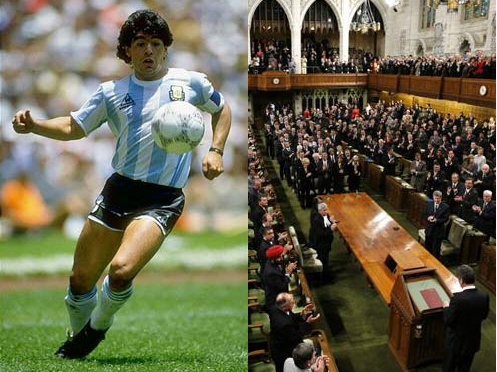

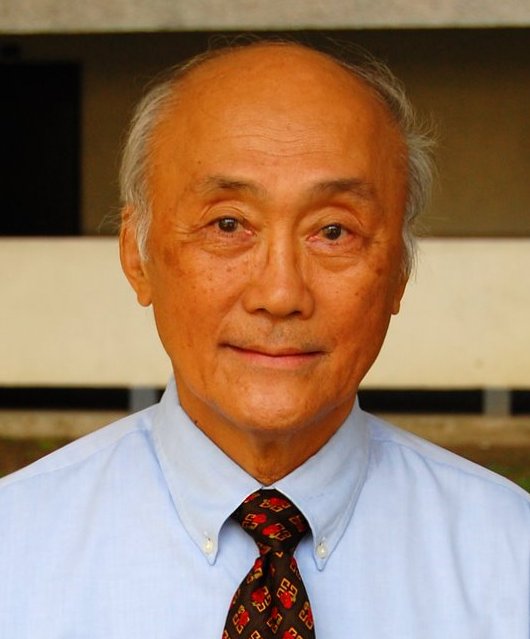
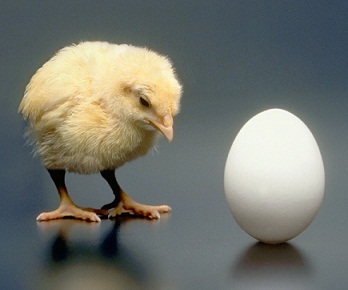
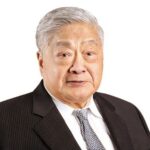



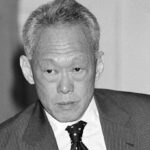



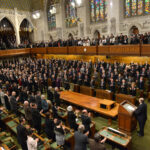


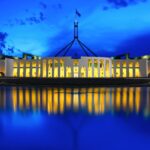




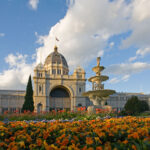


6 Responses
[…] order to answer this question, let us see the differences on how we elect our leaders now and in a Parliamentary system. In our Presidential system, the people choose a President by direct vote. In a Parliamentary […]
[…] sincerely hope that Senator Kiko takes the time to read through my recent essay entitled “Philippine Progress: Shift in Sports, Shift in System” because by simply doing so, he may learn to understand that his bias against proposals to shift […]
[…] a parliamentary system, the majority decides, the prime minister can’t override it. That’s as it should be. So I […]
[…] order to answer this question, let us see the differences on how we elect our leaders now and in a Parliamentary system. In our Presidential system, the people choose a President by direct vote. In a Parliamentary […]
[…] sincerely hope that Senator Kiko takes the time to read through my recent essay entitled “Philippine Progress: Shift in Sports, Shift in System” because by simply doing so, he may learn to understand that his bias against proposals to shift […]
[…] 2. Philippine Progress: Shift in Sports, Shift in System […]